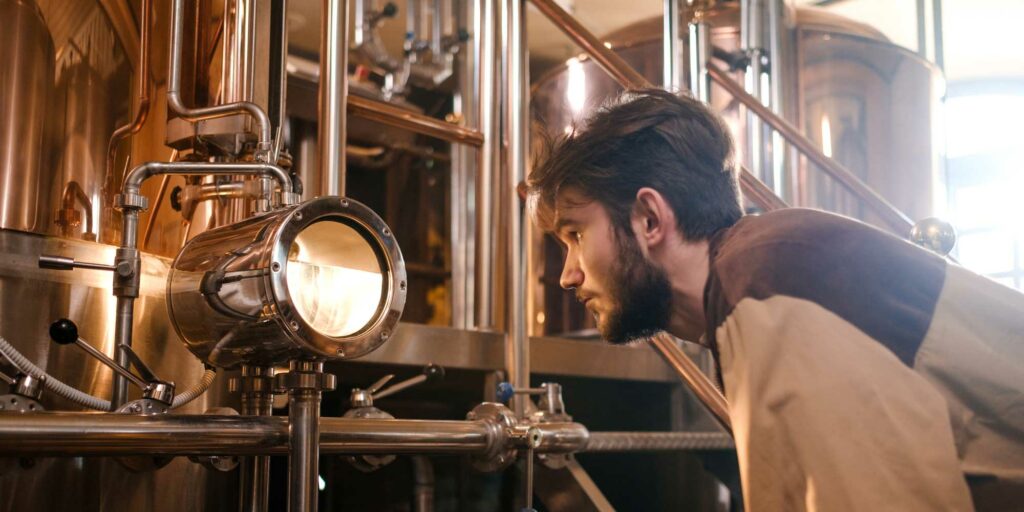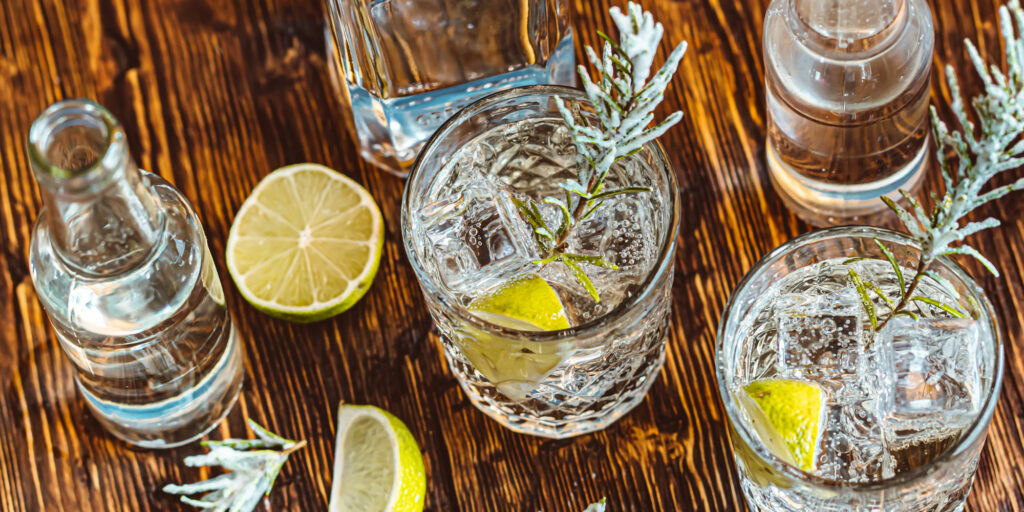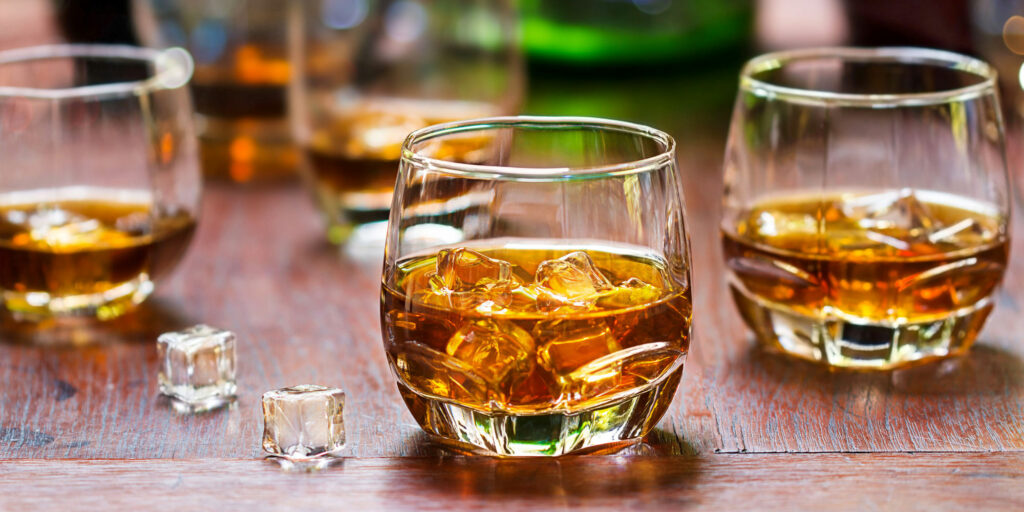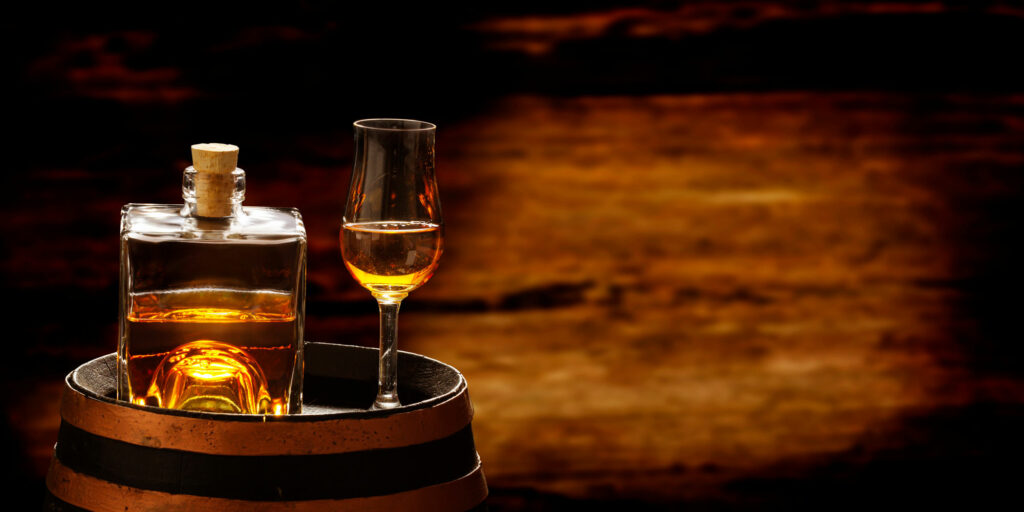
The Craft Distilling Business is booming! Distilleries are popping up across the country in numerous locations, and the demand for craft spirits is growing rapidly. Geterbrewed has a wealth of experience working within the craft brewing industry. We are seeing massive growth in Craft Distilling with some craft breweries moving into this field. In Ireland, the demand for Irish Whiskey is phenomenal. And the demand for Gin in the UK makes craft distilling a very lucrative business opportunity.
The demand for craft spirits is changing due to a younger demographic seeking a different range of spirits packed with flavour. Geterbrewed supplies distillers with ingredients and have experience in installing distilleries. We have an exciting new range of distillation equipment coming from our long-term brewery equipment supplier Brewiks. Ultra premium plug-and-go European manufactured distilling equipment.
Craft Distillers are experimenting with a diverse range of speciality malts and botanicals. The portfolio of distilling ingredients now stocked at Geterbrewed allows the distiller to order with express delivery. As well as confidence that these are the finest ingredients in the industry backed up with full technical support.
Craft Gin Distilling – Gin is characterised by the flavour of Juniper.

Start-up distilleries are kicking off by buying neutral grain spirit at 96% abv (this spirit is already distilled ). Then Rectifying (redistilling) or compounding the base spirits into a packaged product for selling. This process can involve steeping the blend of botanicals in the neutral grain spirit, known as hot stepping. This is done to extract the flavours. Vapour infusion is another way of making gin. The botanicals sit in a vapour basket or chamber above the neutral grain base spirit. This process works as the ethanol vapours travel as heated over the botanicals absorbing the botanical oils and re-liquifying at the condenser into the collected spirit.
There is also vacuum distillation. Which is the distillation in a protected reduced pressure environment which allows it to boil at a lower temperature than usual. Some distillers use this method as they feel it protects the delicate botanical flavours as the processing temperature is lower.
The neutral base spirit can be made from a number of ingredients, including corn, wheat, barley, maize, and rye. Nearly all Craft Gin Producers buy in their Neutral Grain Spirit. With a small selection, choosing to make their own base spirit. The cost and efficiency savings using bought-in neutral grain spirit are huge as NGS is produced in massive bulk by industrial distillers. The cost to produce from scratch doesn’t just require a more difficult licence application process and huge amounts of energy and labour. There is no flavour in NGS, so we personally don’t see the need for craft distillers to make their own. It is a high-quality product. The skill of making a good gin evolves around how to blend botanicals. Achieving a rounded delicious flavour. It isn’t in what NGS the distiller uses.
There are 5 styles of Gin
- London Dry
- Plymouth
- Old Tom
- Genever
- International Style
Craft Whiskey Distilling

The creation of beautiful malt whiskey (the water of life) is through distillation methods. Extracting the goodness from malted barley and other grains. It’s fair to say a lot of patience is required for the return on your investment. With Irish Whiskey having to age for 3 years.
Whiskey distillation involves the creation of a base recipe using a selection of malts. Similar to brewing beer, you are wanting to create a mash that converts the starches in the malt into fermentable sugars. Some distilleries separate the grains after they have achieved the conversion (desired sugar content). Then send the wort to the fermenter to commence fermentation. Some send everything over to the fermenter and ferment on grain.
Once you have created that base, you ferment it with yeast to turn it into a wash. The wash is then processed further, and the distillation process commences. You collect and separate the distillation run.
Heads, Hearts & Tails
The collection consists of Heads, Hearts & Tails. The process in the Still heats the wash until it vaporises. It then recondenses into higher-strength alcohol with the desired level of purity. The heads contain methanol or acetone. This is discarded as its toxic. The aim is to use the Hearts as the pure goodness, and the Tails can be redistilled for further development into Hearts.
Once distillation is complete, the hearts will need to be aged in barrels to develop character and flavour from the wood. Temperature affects how the whiskey ages in the barrels. Often whiskey is aged in different types of barrels to achieve different flavours.
The craft distilling business is seeing many distilleries experiment with speciality malts to achieve complex flavours from the malts. Geterbrewed is now selling a lot of flaked, torrefied grains and kilned and roasted malts that make up the base recipe for distillation runs. The finished product is often diluted before packaging using water.
The different types of whiskey produced globally are:
- Irish Whiskey – The best whiskey in the world made in Ireland must have the full process completed in Ireland and aged for a minimum of 3 years to be called Irish Whiskey
- Scotch Whiskey – Must be distilled at a distillery in Scotland from water and malted barley.
- Blended Whiskey – a mixture or blend of whiskeys from different sources, including different distilleries
- Bourbon Whiskey (American whiskey) – Produced in the United States with a mash produced for at least 51% of the named grains and aged in new charred oak barrels.
- Canadian Whiskey – A blended whiskey made in Canada that must be aged in oak and produced no less than 40%
- Japanese Whiskey- Commonly known to be modelled after the scotch description, must be fermented, distilled and aged in a distillery in Japan.
- Rye Whiskey – must be distilled from at least 51% rye grain
- Tennesse Whiskey – must be from at least 51% corn, is aged in new charred oak barrels and has undergone the Lincoln County process, filtering the new-make spirit through layers of charcoal before barreling
- Single Malt Whiskey – Made specifically from one type of grain
Craft Vodka Making

Craft Distilling business has seen a recent desire for high-quality vodka. The base ingredients can have a significant impact on the quality of the vodka. Vodka is commonly made from wheat or potatoes but can be a mixture of wheat, rye, barley & maize.
Like other distillation processes mentioned above, you want to take the starches for the base recipe and convert them into fermentable sugars. The mash takes place, ensuring that you get the conversion to create the sugary wort before it goes to the fermenter.
Fermentation takes place at a stable fermentation temperature, and the yeast eats the fermentable sugars and turns it into alcohol. Fermentation is critically essential in vodka production. You want to ensure the vodka has enough yeast nutrition and pay attention to the correct ph and fermentation temperature to produce a desirable end product.
After the distillation run, vodka is commonly processed through a carbon filter or activated charcoal to remove any impurities. Because there is so little to hide behind in craft distilling vodka, it’s important the building blocks are carefully monitored to produce a high-quality product that can be enjoyed and sipped neat.
Different types of stills will also contribute to different flavours in craft vodka production.
Craft Rum Production

Craft Distilling Business of Rum making takes place by creating molasses from sugar cane. Juices are squeezed from the sugar cane to create molasses. The molasses contain the sugars required for the yeast to convert to alcohol.
The use of sugar cane for production makes this spirit unique to all other types of distillation. History tells us that it originated in the Caribbean, where plantation slaves discovered that molasses could be fermented into alcohol. Rum is the oldest spirit in the world.
After fermentation, the rum is put through the still to create vapour that is then returned to a liquid form. Like the distillation processes mentioned in the earlier parts of this blog, you collect the Heads, Hearts & Tails. The distiller selects the purest Hearts that are then subsequently aged in oak barrels.
The rum maturation in barrels adds distinct flavours and contributes to colour, and mellows the harsh flavours from the alcohol.